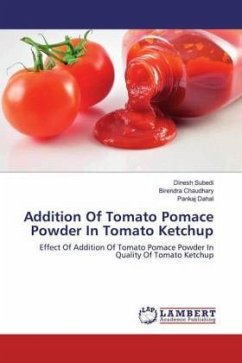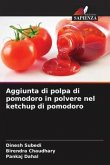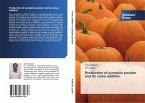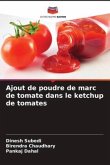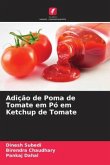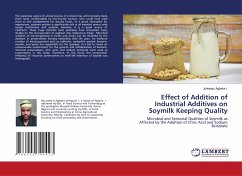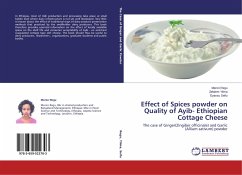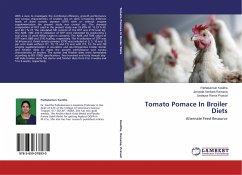Tomato ketchup is one of the most popular commercially available sauces in restaurants and domestic households. Tomato processing is accompanied by the generation of waste comprised of bio-organic substances (seeds, pulp and skins). Skins and seeds comprise about 1-4% (w/w) of the total tomato processed for tomato products and are usually destined to landfill or used for animal feed. Tomato ketchup or sauce had been prepared since many years ago but the tomato pomace was wasting during the preparation of tomato ketchup. This book is about on the utilization of tomato by-products during tomato ketchup preparation in dried form as a thickening agent in the same ketchup and to study the effect of addition of pomace powder in the quality of prepared ketchup. The study was carried out as a partial fulfillment of the requirements for the degree of B. Tech. (Food) and approved by Department of Food Technology, Central Campus of Technology.

